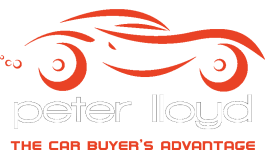The Ranger outsold the HiLux in January 2023. We compare the mid-range models.

TOSSING UP BETWEEN THE RANGER AND HILUX UTES? KICK OFF THE DECISION WITH THIS ‘ON PAPER’ COMPARISON

While the HiLux may seem a little long in the tooth compared with the new Ford Ranger and recently updated Isuzu D-Max, it remains in the fight as the three duke it out for top spot on the dual-cab sales ladder.
Long in the tooth it may be, the HiLux remains a frontrunner and for good reason; the platform is trusted. Not even widespread diesel particulate filter dramas could turn buyers away from the ute famously dubbed ‘unbreakable’.
How do they compare?
In the name of ute-based science, let’s put the dual-cab Ranger XLT and HiLux SR5 head-to-head on paper and see which of the two mid-range mules comes out on top.
The fairest comparison is between the automatic variant of the 2.8-litre four-cylinder HiLux SR5 and the four-cylinder 2.0-litre variant of the Ranger XLT – because the six-pot Ford is both more expensive and a fair bit gruntier, and because the Ranger XLT isn’t offered with a third pedal.

Crunching the numbers
Ranger 4-cyl v HiLux SR5 Specifications
| Ford Ranger XLT | Toyota HiLux SR5 | |
|---|---|---|
| Length | 5370mm | 5325mm |
| Width | 1918mm | 1855mm |
| Wheelbase | 3270mm | 3085mm |
| Kerb Weight | 2271kg | 2110kg |
| Payload | 949kg | 940kg |
| Towing Capacity | 3500kg | 3500kg |
| Engine | 2.0-litre turbo-diesel | 2.8-litre turbo-diesel |
| Transmission | 10-speed automatic | 6-speed automatic |
| Power | 154kW @3750rpm | 150kW @ 3000-3400rpm |
| Torque | 500Nm @ 1750-2000RPM | 500Nm @ 1600-2800rpm |
| Claimed fuel use | 8.4L/100km | 7.9L/100km |

Ranger v HiLux: Size and off-road chops
In standard guise, both are strong off-road contenders and will tackle anything their slightly more premium stablemates will.
Both have a rear locking diff but, bear in mind, both are also praised for their intelligent off-road smarts – so most owners won’t be needing it. Nice to have, regardless.
Ground clearance is comparative for both models, and competitive within the 4×4 ute segment, at 234mm for the Ranger and 226mm for the HiLux.

The Ranger measures 5370mm in length against the slightly shorter HiLux at 5325mm, and width is a similar story with the burly Ford coming in at 1918mm versus 1855mm.
More likely to have a bigger impact on driving manners than length and width is wheelbase, which again has the Ford coming out as largest of the two at 3270mm against 3085mm for the Toyota.
For inner-city dwellers, height is an important number when frequenting underground carparks. Both come in under the magic 1900mm number, meaning they’ll fit in pretty much any car park, the Ranger topping out at 1884mm and the HiLux 1865mm.

Ranger 4-cylinder v HiLux: Engine and gearbox
On paper, these two utes offer comparative grunt and both offer exactly 500 newtons of twist, which seems to be the gold standard these days.
Power figures are near-identical at 154kW/500Nm for the Ranger and 150kW/500Nm for the HiLux, but how they arrive there is a little different.
The HiLux uses a 2.8-litre turbo-diesel while the Ranger gets the smaller 2.0-litre turbo-diesel and, while punchy, the Ford unit has to work a little harder.
Whereas the HiLux makes peak torque by 1600rpm and carries it all the way to 2800rpm, the Ranger’s torque band is slimmer as all 500Nm arrives at 1750rpm before dropping off after 2000rpm.

The HiLux also makes peak power at 3000rpm, versus 3750rpm for the Ranger.
All of this does, on paper, mean a more usable torque band for the HiLux, but the 10-speed automatic transmission in the Ranger changes things. This is something that, while not obvious when looking at a spec sheet, becomes apparent after driving the Ranger.
While the HiLux gets a six-speed automatic unit, the Ranger gets 10 gears to keep it on the steam despite its narrower torque band. In short, this evens things out and Ford makes good use of the torque with the extra cogs.
When we performance tested the new Ranger last year, we found the 2.0-litre XLT gets to 100km/h in 9.2 seconds. By contrast, the HiLux SR5 did it in 11.1 seconds when we last tested it.

Ranger v HiLux: Towing and payload
It’s apples for apples here, because both have a full 3500kg braked towing capacity and nearly a tonne of payload potential.
The Ranger offers 949kg of payload, while the HiLux comes in a smidge lower at 940kg. Given passenger weight factors into the payload equation, less than 10kg is zilch in the scheme of things.
Both utes will comfortably tow and run around loaded, but the HiLux may do it slightly more effortlessly with its wider torque spread.

Pricing and Value
The automatic HiLux SR5 starts at $61,930, while the Ranger XLT 2.0-litre bi-turbo starts at $61,990 – less than a 100-dollar note between them – both before on-road costs.
Neither is the cheapest option, though, especially when pitted against budget-friendly options like the Mitsubishi Triton GSR at $56,940, or even the Isuzu D-Max LS-U at $61,000.
Toyota offers a five-year, unlimited-kilometre warranty for its HiLux range and will extend it to seven years for the driveline if serviced within its dealer network. Ford stands by its five-year, unlimited-kilometre warranty on all Ranger models.
Services come around every 10,000km or six months with the Toyota, which may deter some buyers. For Ranger owners, trips to the dealership will come around every 15,000km or 12 months.
17 FEB 2023, Cobey Bartels
